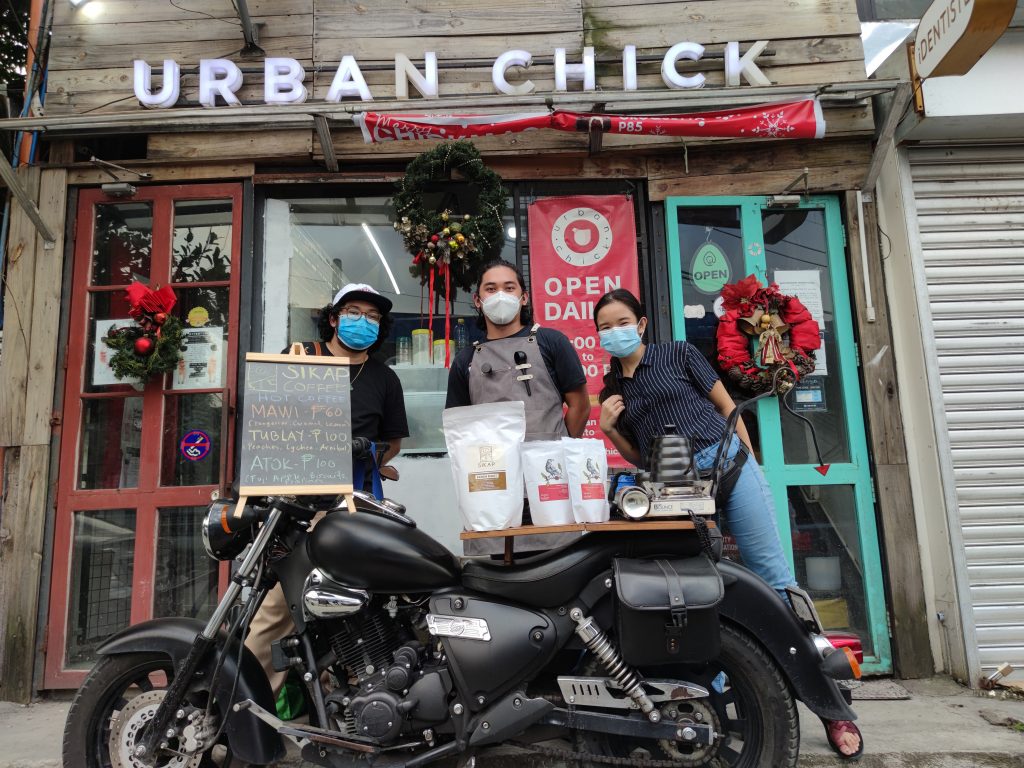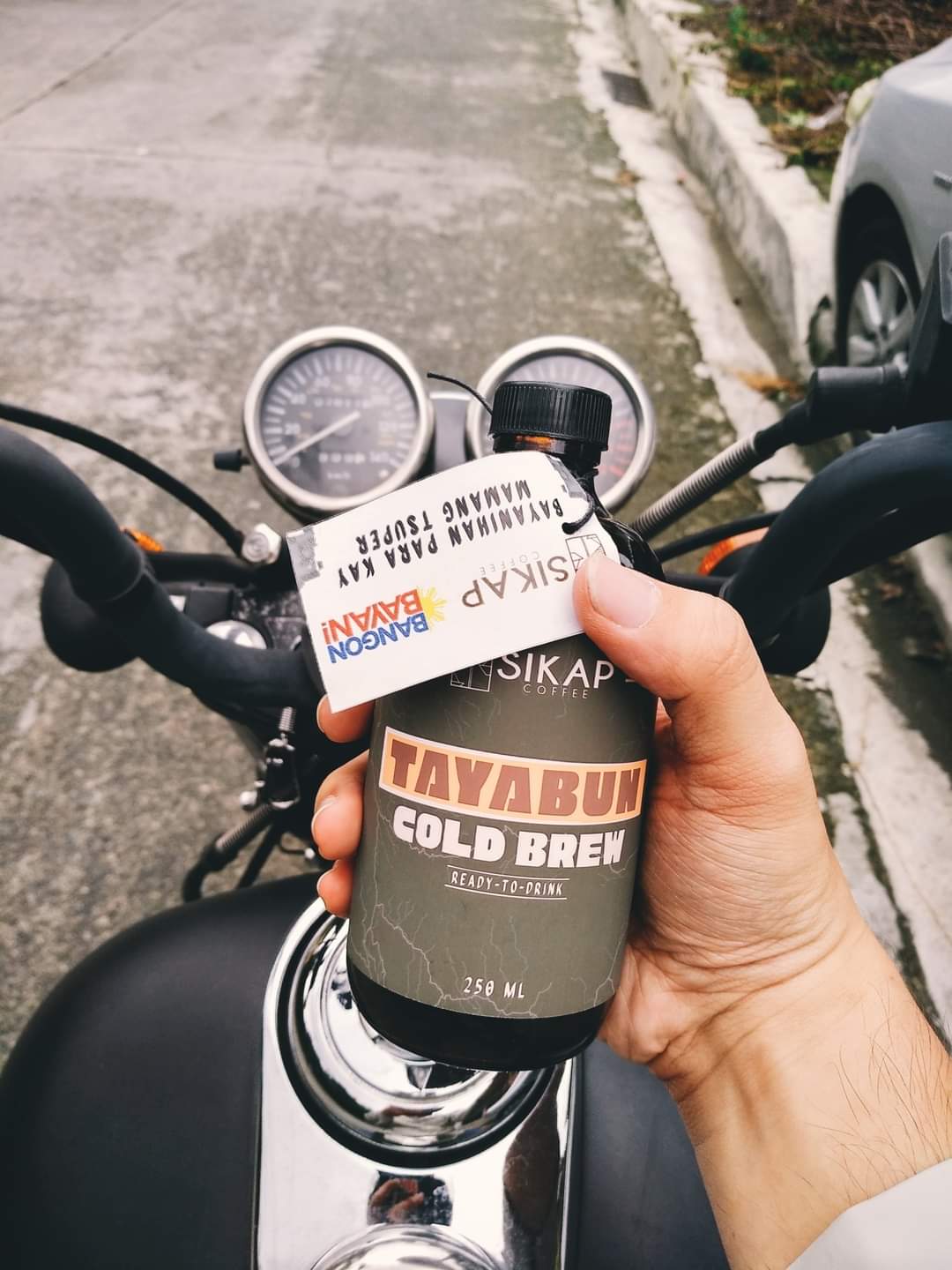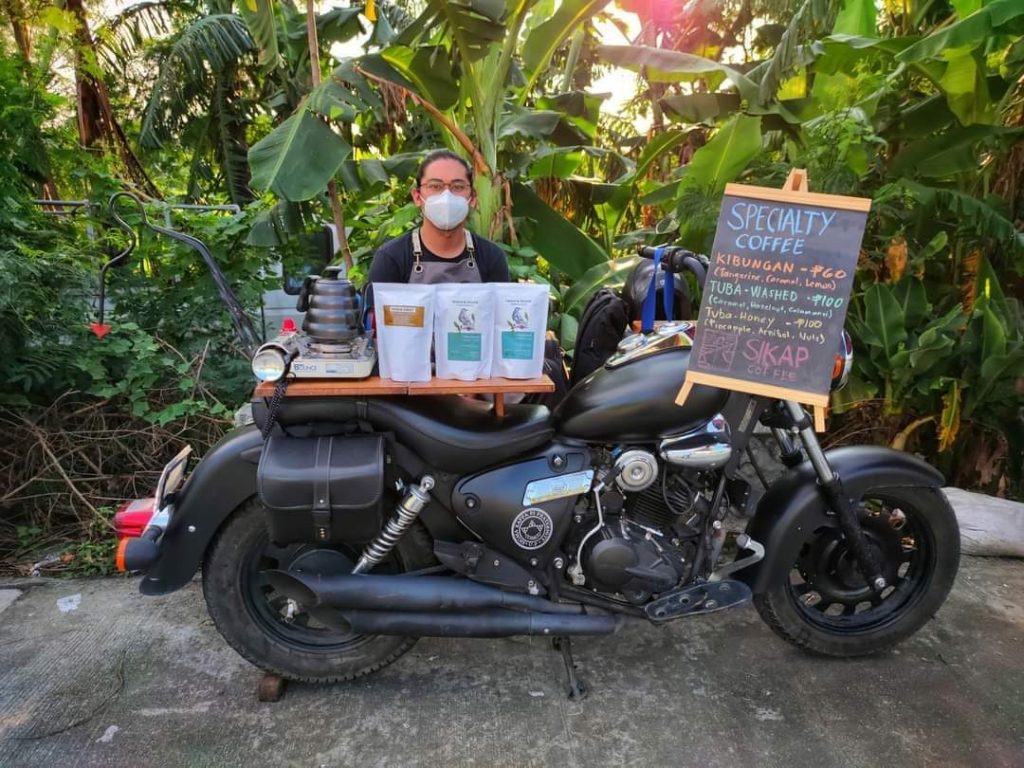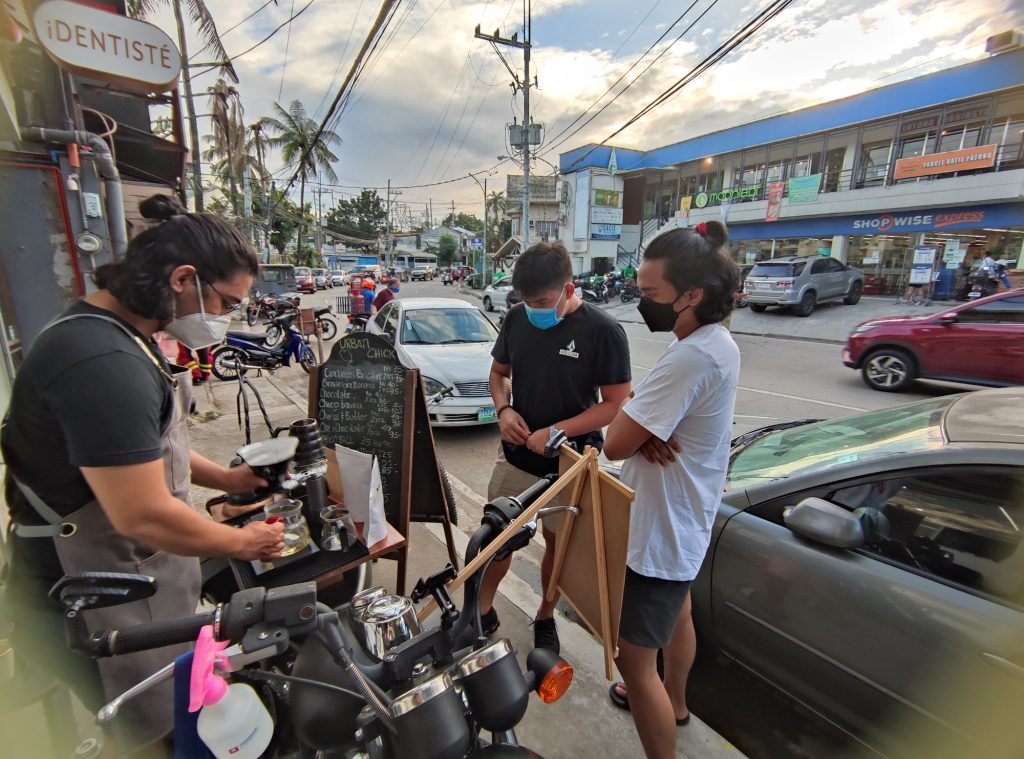The street has always been a space of hope. As American urbanist Jane Jacobs wrote, “Streets and their sidewalks, the main public places of a city, are its most vital organs.” And it has become even more apparent in the time of the pandemic when movement outdoors is restricted and discouraged.
Consider the community pantry phenomena in the country, for example. From a bamboo cart of goods on Maginhawa Street, thousands of others were inspired to build a space in the public sphere that encourages collaboration and community-building.
Business-wise, the streets have also made it possible for restaurants to thrive while dining in air-conditioned spaces remains risky. Over the past year, restaurants with the privilege to do so have ventured into outdoor dining.
For coffee enthusiasts, the streets have also become a viable space to uplift the local coffee community. In recent months, mobile cafes have become more visible on the streets. One of these is the Quezon City-based coffee enterprise Sikap Coffee.
The whole process, from grinding the beans to brewing, happens in front of the customer. Everything they need for their operations is propped on the motorbike: a portable stove, a pot, their pour-over equipment and bags of coffee beans.
Founded by marine science researcher Lala Calle, former call center agent Stephen Villena and lawyer Kevin Bulotano, Sikap Coffee was first conceptualized as a possible source of extra income during the pandemic.
“Although we have day jobs, there were issues such as delays in salaries and missed opportunities,” they say. “The idea of selling coffee started when we tried making cold brew coffee at home. We started experimenting and thought it would be a good idea to sell it, especially [since] people were mostly working at home at that time.”
Back then, they already wanted to set up a mobile cafe on Villena’s motorbike, a Keeway Superlight 200. But they decided to postpone its launch to give way to research. The time they spent on research led them to anchor Sikap on a much bigger purpose: to advocate for ethical and traceable coffee from local farms.



They coordinated with the Department of Trade and Industry in Bukidnon and tapped the award-winning Miarayon Lapok Lirongan Tinaytayan Talaandig Tribal Association. This partnership resulted in the first cold brew they launched in July last year called Tayabun, named after the guardian deity Agtayabun.
In September, they launched another cold brew variant called Mawi. The name was taken from the Kankanaey phrase “Gumawisan di rikna” (“bumuti ang pakiramdam” in Tagalog). As the inspiration for its name suggests, the coffee beans for this variant came from Kibungan, Benguet produced by agricultural cooperative JAC Farms.
It was only in December when Sikap’s mobile cafe came to fruition. With Villena as the main barista, they set up his motorcycle in front of Urban Chick along Maginhawa Street in Quezon City. Then, they traveled down south and stationed their mobile cafe along NIA Road in Imus, Cavite.
The whole process, from grinding the beans to brewing, happens in front of the customer. Everything they need for their operations is propped on the motorbike: a portable stove, a pot, their pour-over equipment and bags of coffee beans. There’s even a chalkboard bearing their lean menu—there are usually three varieties to choose from with prices ranging from P60 to P100 per cup. While pour-over coffee is the constant highlight of their mobile cafe, lattes and iced drinks became part of their menu when they collaborated with coffee enthusiast Trina Roque of Trina’s Home Brews.
There are usually three varieties to choose from with prices ranging from P60 to P100 per cup. While pour-over coffee is the constant highlight of their mobile cafe, lattes and iced drinks became part of their menu when they collaborated with coffee enthusiast Trina Roque of Trina’s Home Brews.
Although the motorcycle cafe is not difficult to set up, there are many forces that they could not control. The erratic weather, for instance, interrupted their operations. When this happened during their pop-up along Maginhawa, their friend allowed them to transfer the mobile cafe to the restaurant’s rooftop.

“The ongoing ECQ-MECQ classification of the city makes it harder for us to find a better place to set up our mobile cafe. With the increasing number of COVID-19 positive cases, our movement has been limited since April,” they say.
But for the Sikap trio, holding these pop-ups is a vital aspect of their advocacy.
“We decided to introduce the mobile cafe because we wanted to grab people’s attention and make them aware that there is such a thing as ethically sourced and traceable coffee,” Calle, Villena and Bulotano say. “We have this vision: That when we are able to educate others on the advocacy of the third wave coffee movement, then there will be more brewers who will support local farmers and roasters, and maybe one day, this community would further uplift the country’s coffee industry.”





